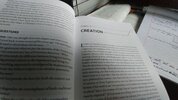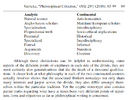bookslover
Puritan Board Doctor
Has anyone read Biblical Critical Theory: How the Bible's Unfolding Story Makes Sense of Modern Life and Culture by Christopher Watkin (Zondervan, 2022). Zondervan says that the first printing sold out completely before it was even released, and even Zondervan, per its website, doesn't have any copies (hopefully, they're printing more). I haven't even seen a copy. Must be some book!
Judging from the sample on Zondervan's website, the book is, in a sense, a long meditation on Augustine's City of God.
Judging from the sample on Zondervan's website, the book is, in a sense, a long meditation on Augustine's City of God.
Last edited:




